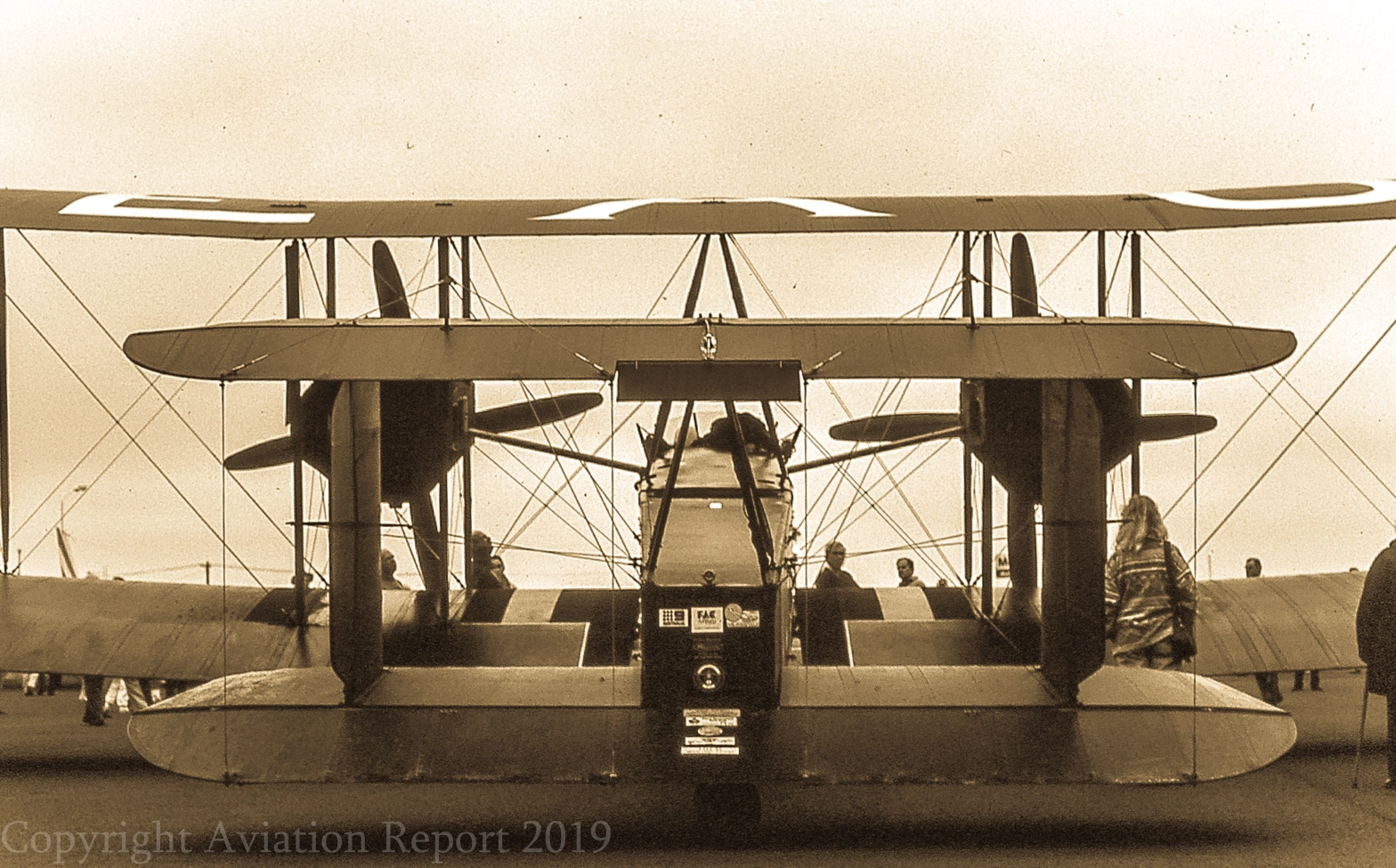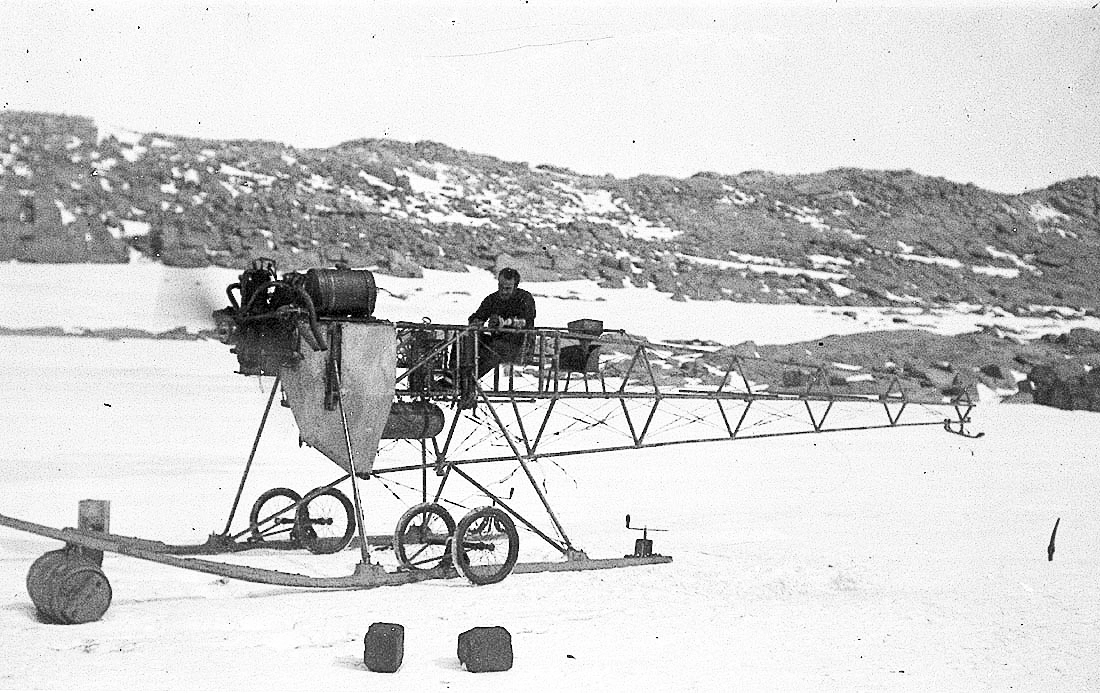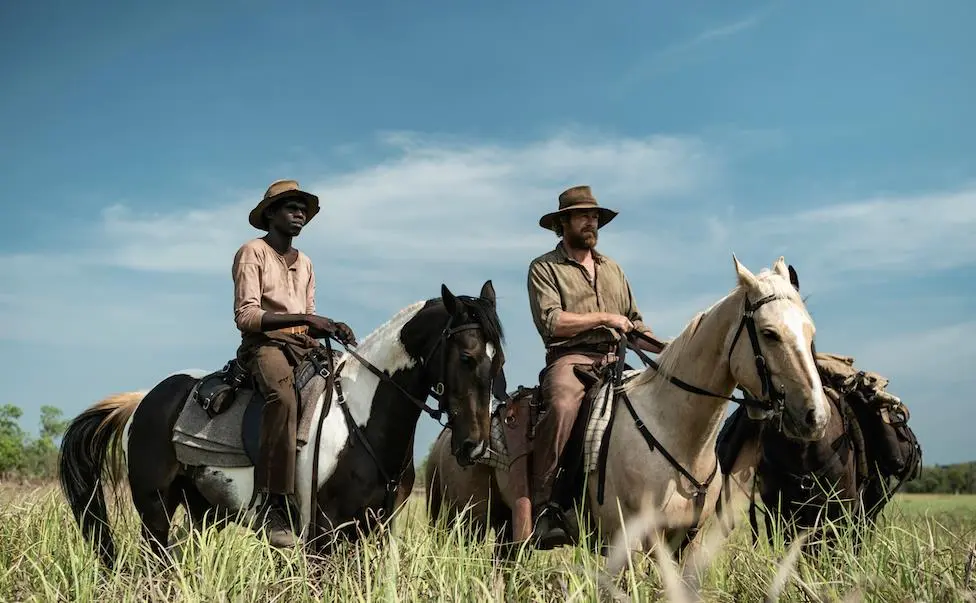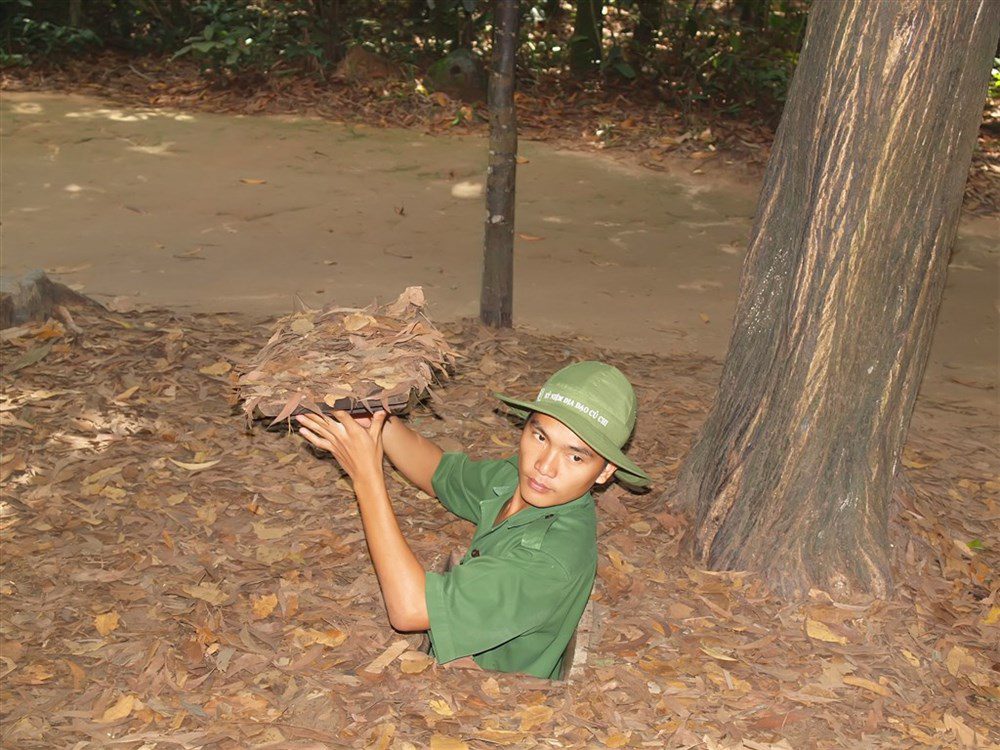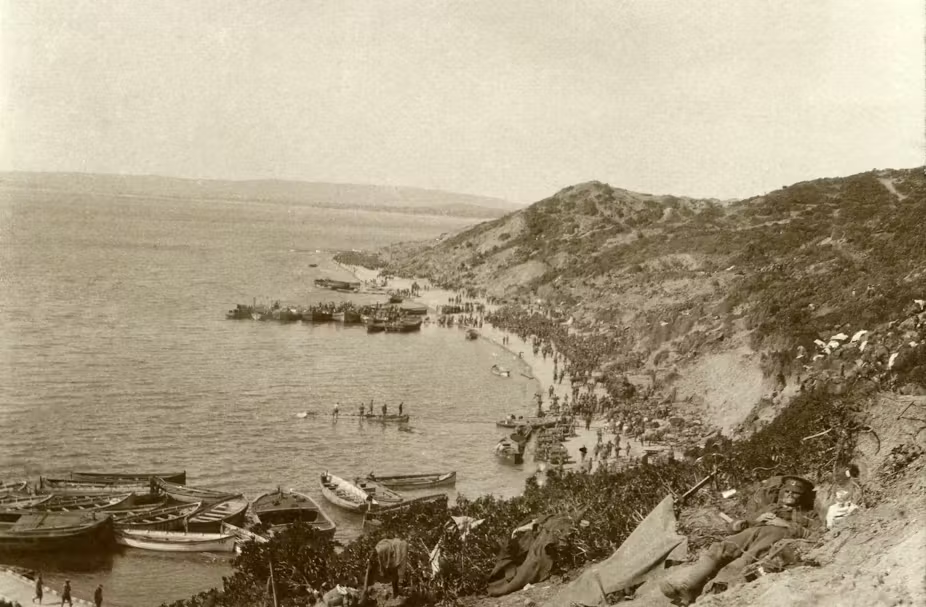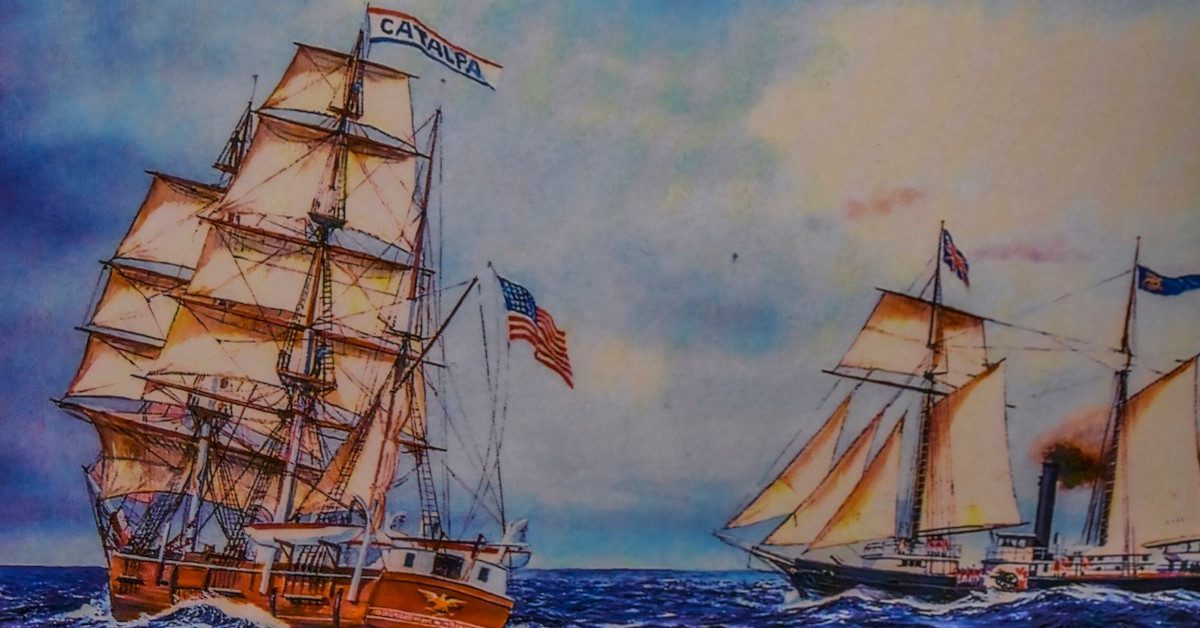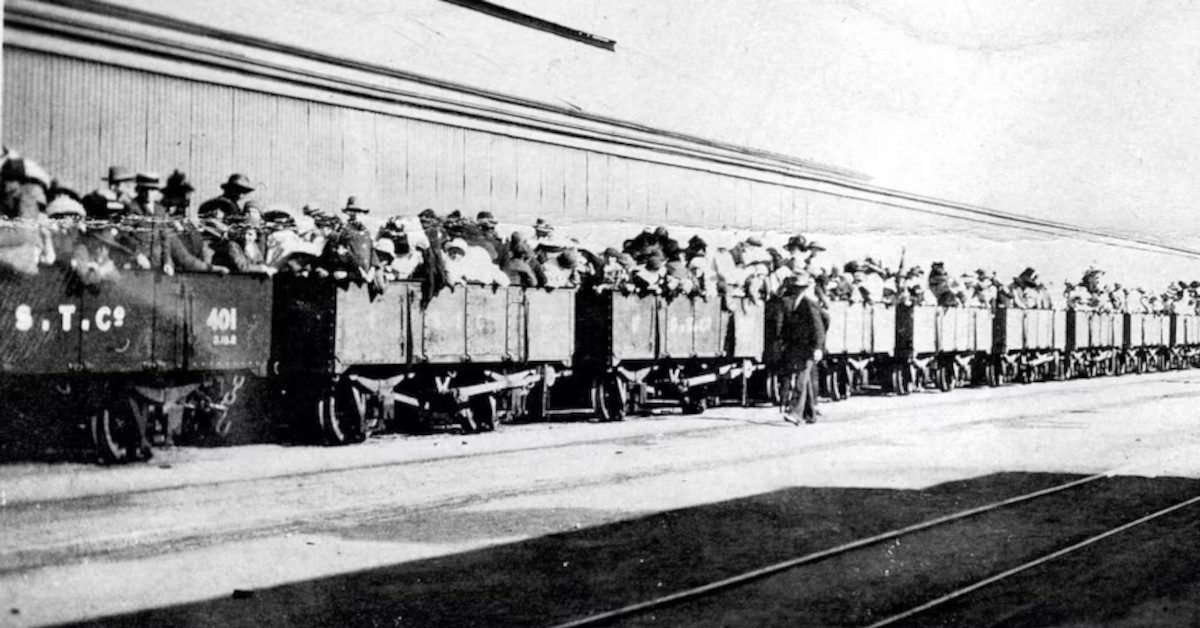
World War I in Broken Hill: a Turkish-Inspired Attack on Australia’s Home Soil
From August 1914 to November 1918, over 416,000 men served in Australian forces fighting the First World War, in theatres ranging from the Pacific to the Middle East and France. 60,000 died far from home in battles fought thousands of miles away. But soon after the war began, one of the few instances when the […]
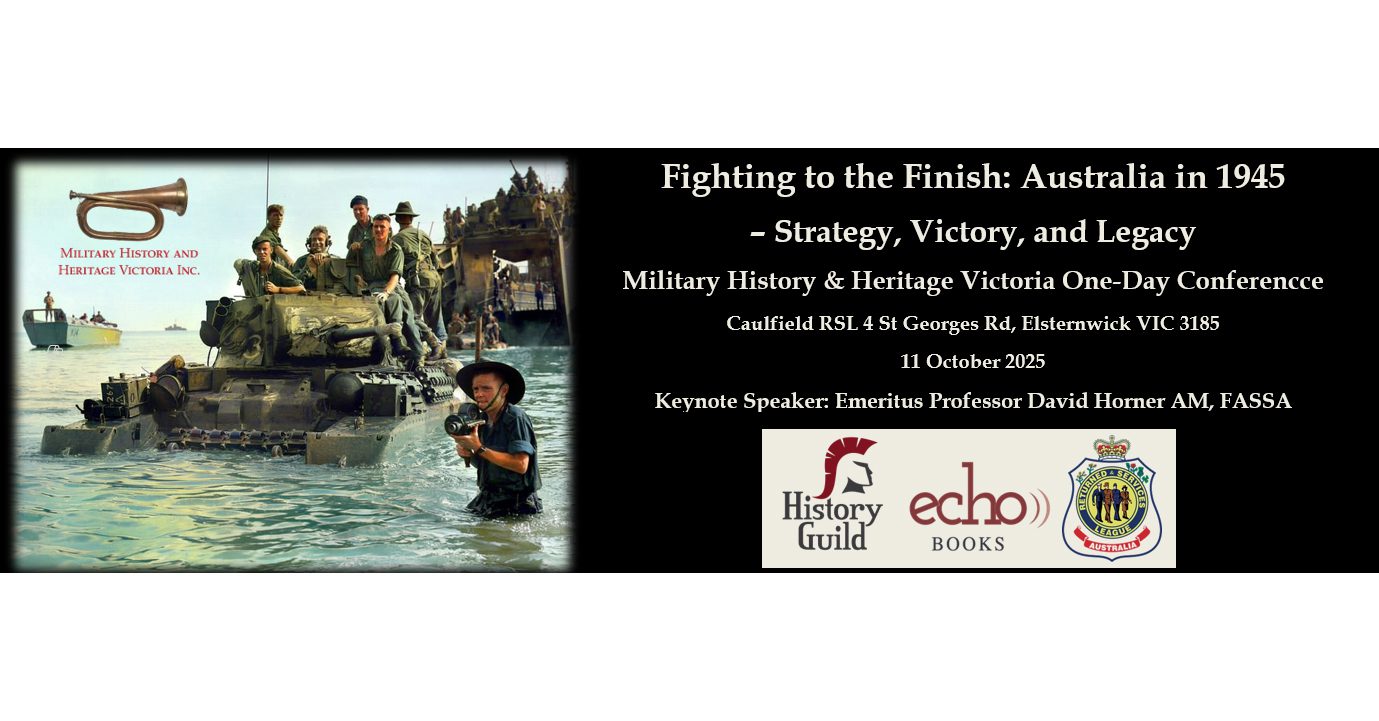
Full Program Announced! Fighting to the Finish: Australia in 1945 – Strategy, Victory and Legacy Conference, Melbourne. Book Now.
Military History & Heritage Victoria is excited to announce that tickets are now on sale for our next conference – Fighting to the Finish: Australia in 1945 – Strategy, Victory and Legacy – which will be held on 11th October 2025 in Melbourne. History Guild is proud to support this conference. Join an esteemed group […]
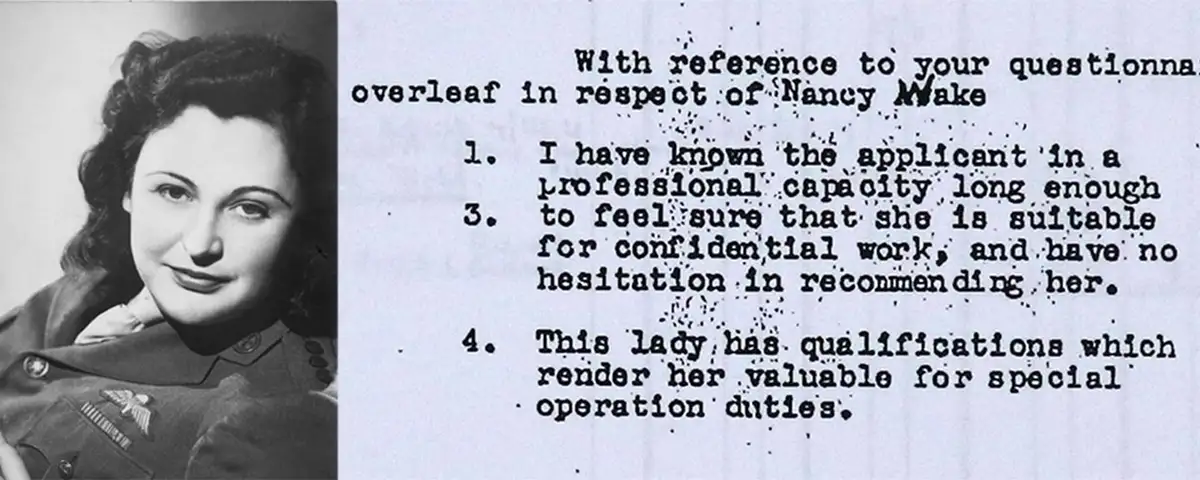
The story of Nancy Wake
Reading time: 7 minutes
Nancy Wake (1912–2011) was an agent for the Special Operations Executive and the most wanted woman in France during the Second World War. Dubbed the ‘White Mouse’ by the Nazis, she was the one who always got away.

Young people remain ill-equipped to participate in Australian democracy
Despite many young Australians having a deep interest in political issues, most teenagers have a limited understanding about their nation’s democratic system. Results from the 2019 National Assessment Program – Civics and Citizenship (NAP-CC) released today show the proportion of young people demonstrating the expected level of knowledge about topics such as democracy and government has not […]
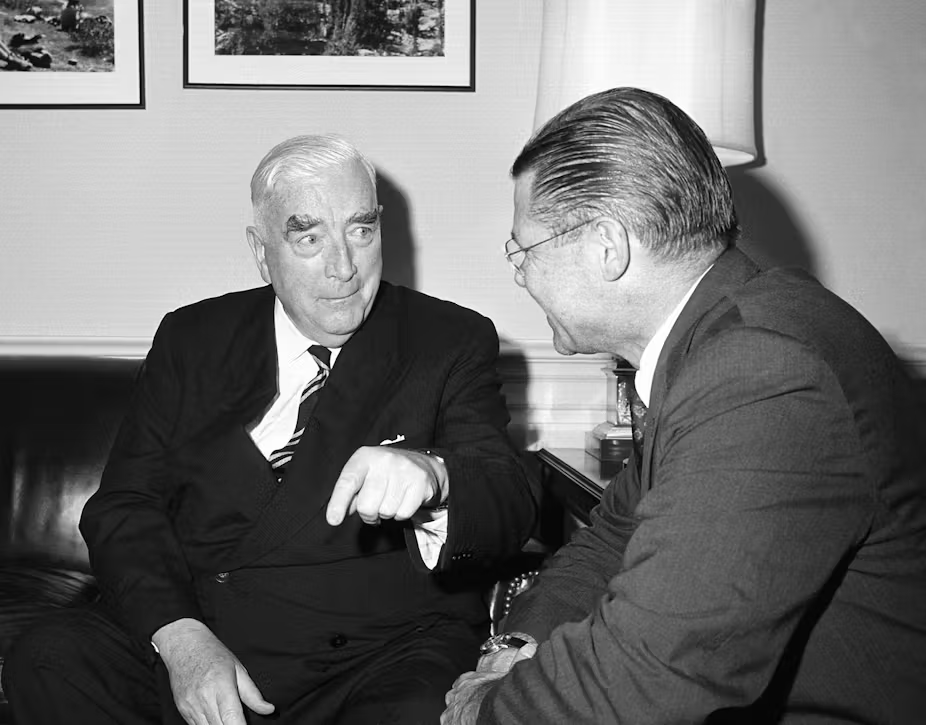
Menzies’ call on Vietnam changed Australia’s course
Reading time: 4 minutes
In 1965, Australia was involved in two crises in Southeast Asia, one in Vietnam and the other in Indonesia. The connection between the two was vital to Menzies’ decision to increase our involvement in Vietnam. Having already committed a battalion to Malaysia to support resistance to the Konfrontasi policy of Indonesia’s Sukarno government, the logical next step for Menzies was to look to Vietnam. He did this with the support of his Cold War warrior and minister for external affairs, Paul Hasluck. They decided to send an Australian battalion to South Vietnam, partly to ensure continued American interest in the region.
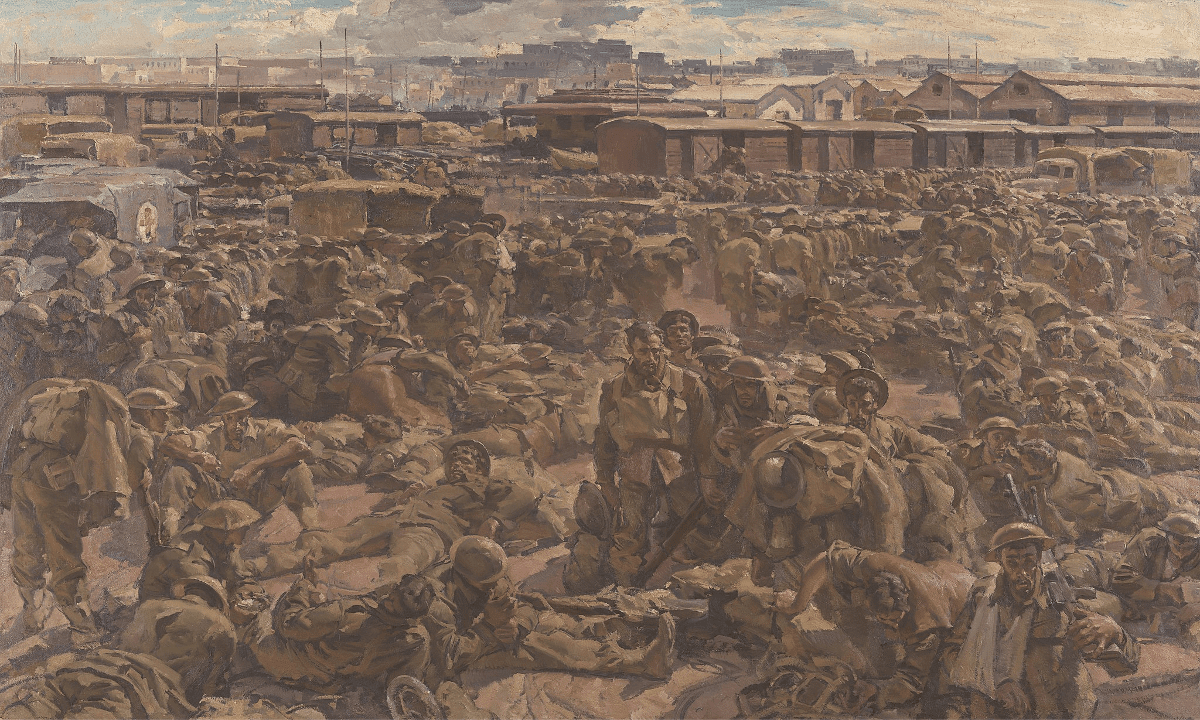
The Greek and Cretan evacuations: Australians tell their stories
The Battle of Greece is a story of grit, determination, and sheer bloody-mindedness as an outnumbered force of British and Anzac troops successfully delayed the tide of Germans invading the Mediterranean country. The goal was to delay the advance long enough to allow for Allied troops to be evacuated from Greece, ready to fight another […]

Call for Papers – Fighting to the Finish: Australia in 1945 – Strategy, Victory and Legacy Conference
Military History & Heritage Victoria is excited to announce the Call for Papers for our next conference – Fighting to the Finish: Australia in 1945 – Strategy, Victory and Legacy – which will be held on 11th October 2025 in Melbourne. History Guild is proud to support this conference. Keynote will be delivered by Emeritus […]
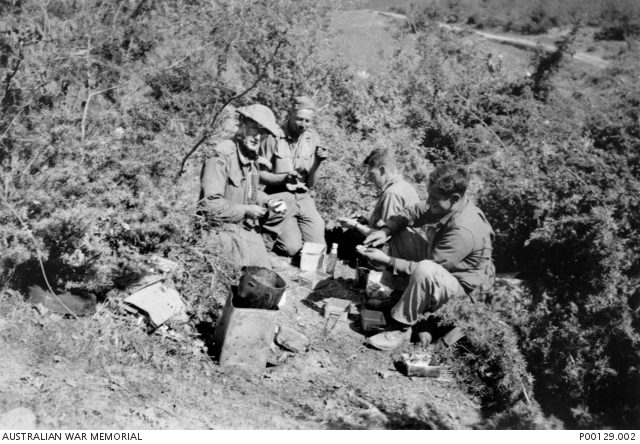
Remembering the Battle of Crete – 2025 Commemorations
This year is the 84th Anniversary of the Battle of Crete. The fighting around Rethymno will be commemorated in a series of events, listed below. 22nd May 2025 18:00 Memorial Service & reception at Armeni in the memory of the Greek Police General Stylianos Menioudakis (Armeni village, Municipality of Rethymno). 19:30 Memorial Service at the […]
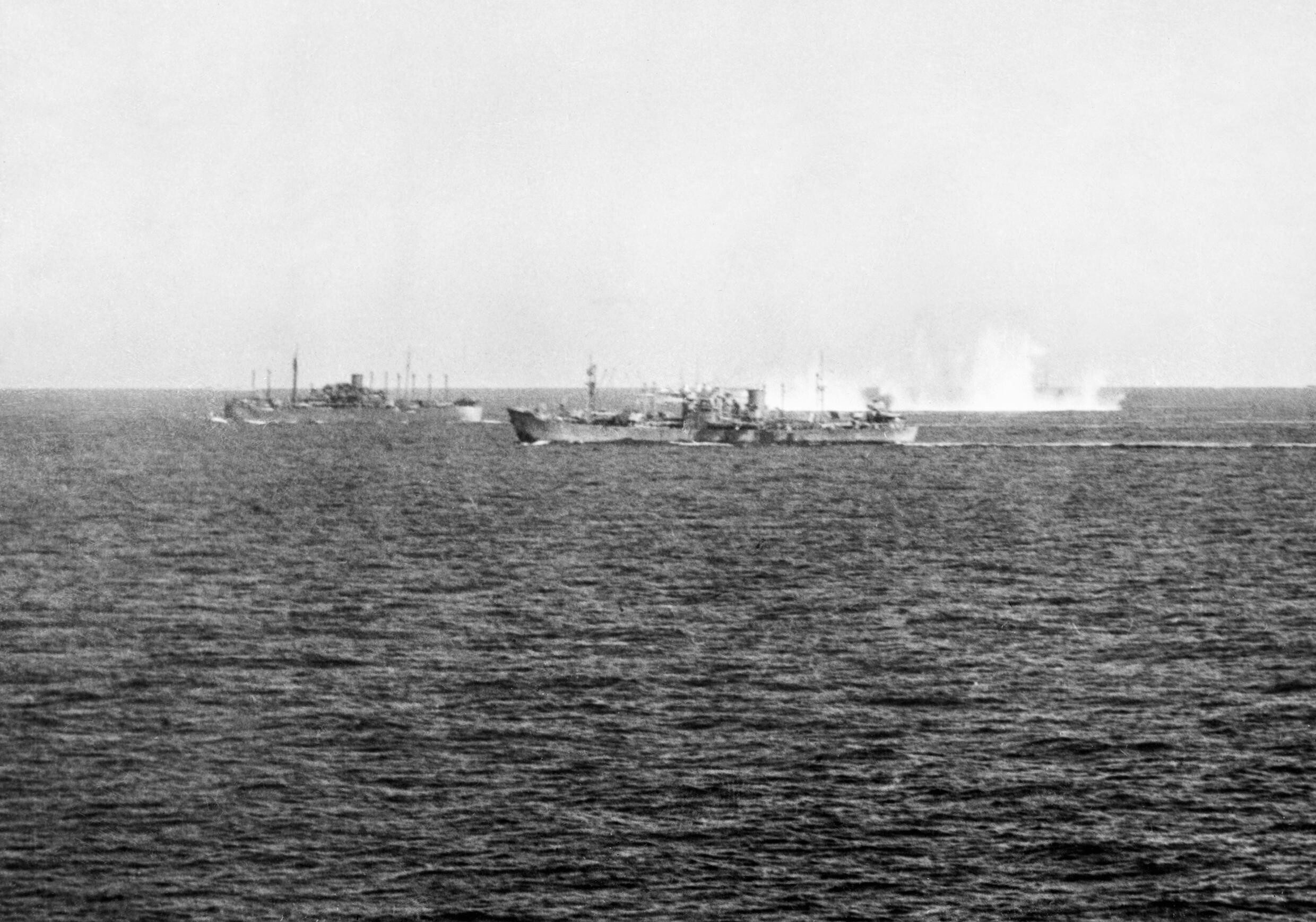
The Malta convoys: Australian sailors speak
Reading time: 7 minutes
The island of Malta, located in almost the exact centre of the Mediterranean, was an important depot and staging post for the Allied efforts in North Africa and, later, the invasion of Italy. As a result, the Axis forces bombed it relentlessly for years, something you can read about more in our article on the Siege of Malta through Australian eyes.

Trump Administration’s Attempts to Curtail Academic Freedom
History Guild supports the Australian Historical Association’s Statement in Response to the Trump Administration’s Attempts to Curtail Academic Freedom. The Australian Historical Association stands in solidarity with our colleagues in the United States of America, where President Donald Trump is attempting far-reaching political interference in the work of historians and museum sector professionals. In his […]
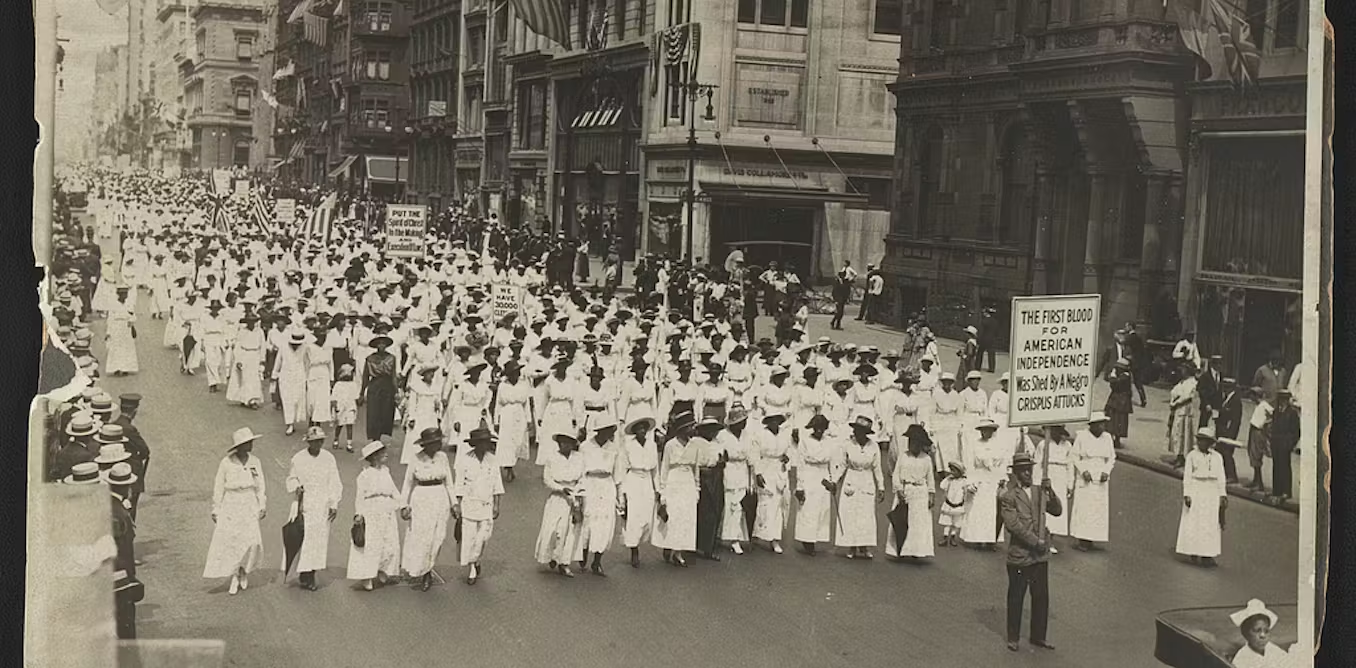
What is suffragette white? The colour has a 110-year history as a protest tool
Reading time: 7 minutes
“Suffragette white” is proving to be a popular fashion choice for women who want to make a statement. Most recently, former Australia Post CEO Christine Holgate donned a white jacket in her appearance before a Senate inquiry into her controversial departure from the organisation.

Flies, filth and bully beef: life at Gallipoli in 1915
Reading time: 6 minutes
Many factors contributed to making the Gallipoli battlefield an almost unendurable place for all soldiers. The constant noise, cramped unsanitary conditions, disease, stenches, daily death of comrades, terrible food, lack of rest and thirst all contributed to the most gruelling conditions.
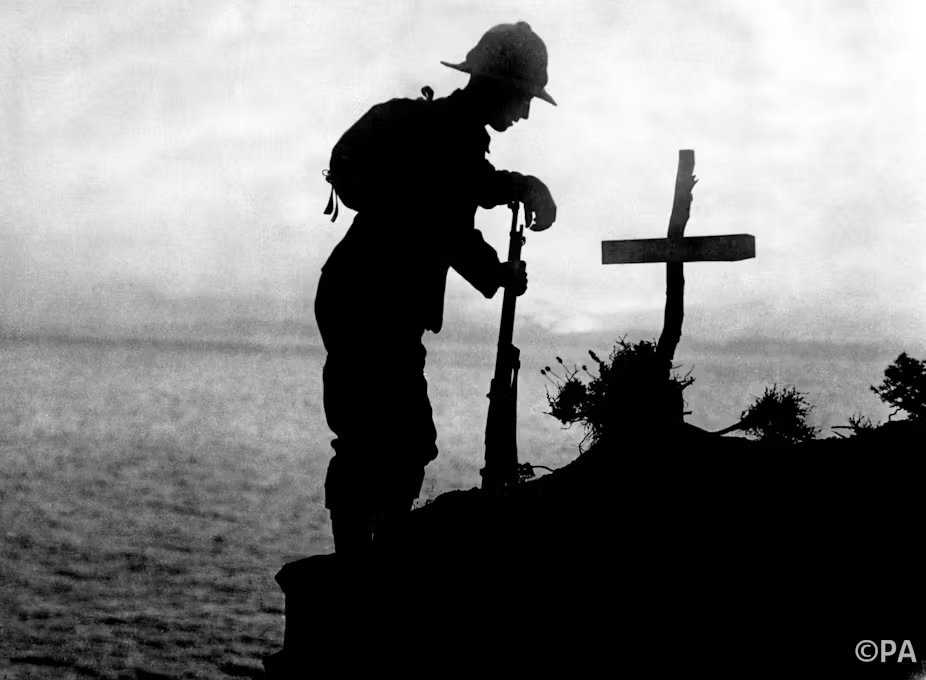
More than a century on, Gallipoli campaign should be more than just a symbol of futility
Reading time: 6 minutes
But the Gallipoli campaign’s result was especially troubling even at the time. Memorial services were held in April 1916 on the first anniversary of the initial landings. Subsequently, this anniversary has acquired special significance as Anzac Day, helping to shape and mark the transformation of Australia and New Zealand from British dominions to independent nations. And Gallipoli has become almost as notorious in British memory as the Somme and Passchendaele in symbolising the carnage of the war. The point is not simply the scale of the losses. It is also the fact that the campaign was so obviously a resounding defeat. What could have been more futile?
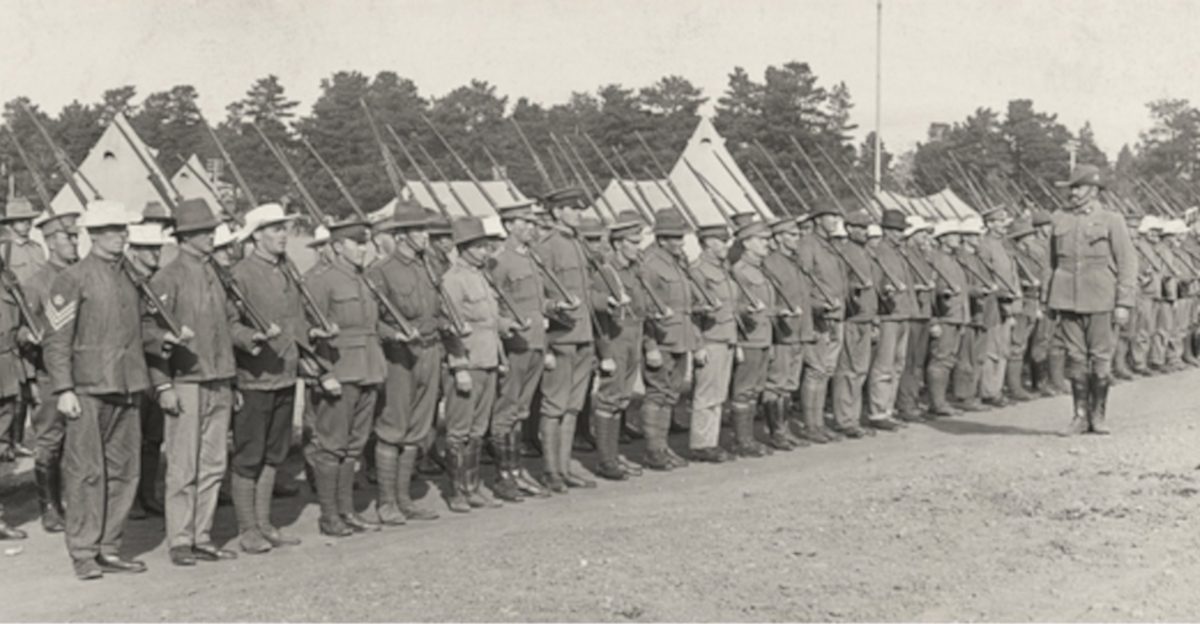
Slavery at home? The Australian Conscription Referendums of WWI
Reading time: 11 minutes
On 31st July 1914, just days before the catastrophe of war was allowed to come to Europe, Australian Prime Minister Andrew Fisher made a solemn promise on behalf of his country to “stand beside the mother country to help and defend her to our last man and our last shilling.”
But as the months passed as the fighting ground on, and as stories of the horrors endured in Turkey and France trickled back to the home front, Australia’s young democracy faced one of its most harrowing trials yet as those on both sides of the issue battled to determine the path ahead.
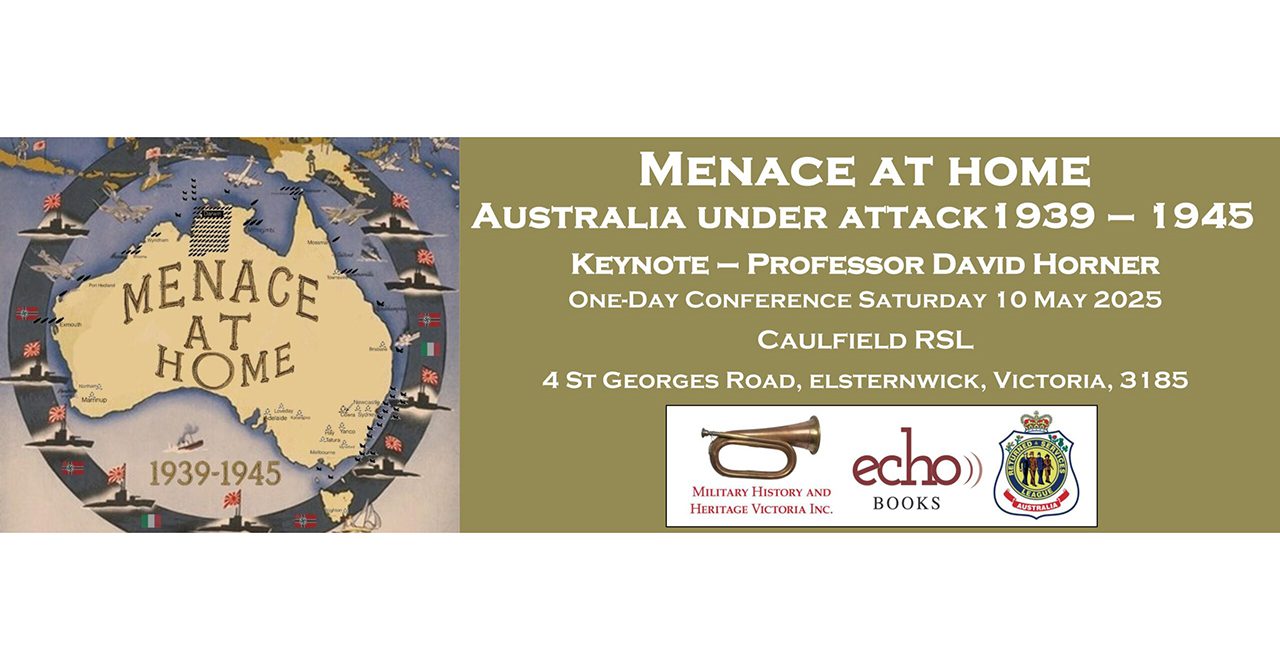
Menace at Home – Australia Under Attack 1939-1945 Conference – Melbourne 10th May
10th May 2025, from 9:00 am to 5:00 pm. This one-day conference will explore the numerous ways Australia was attacked during the Second World War. Between 1939 and 1945, over 1,800 enemy air raids targeted northern Australia, while the nation’s coastal waters were patrolled by raiders, sea mines, and submarines. People of various backgrounds—friends, foes, […]
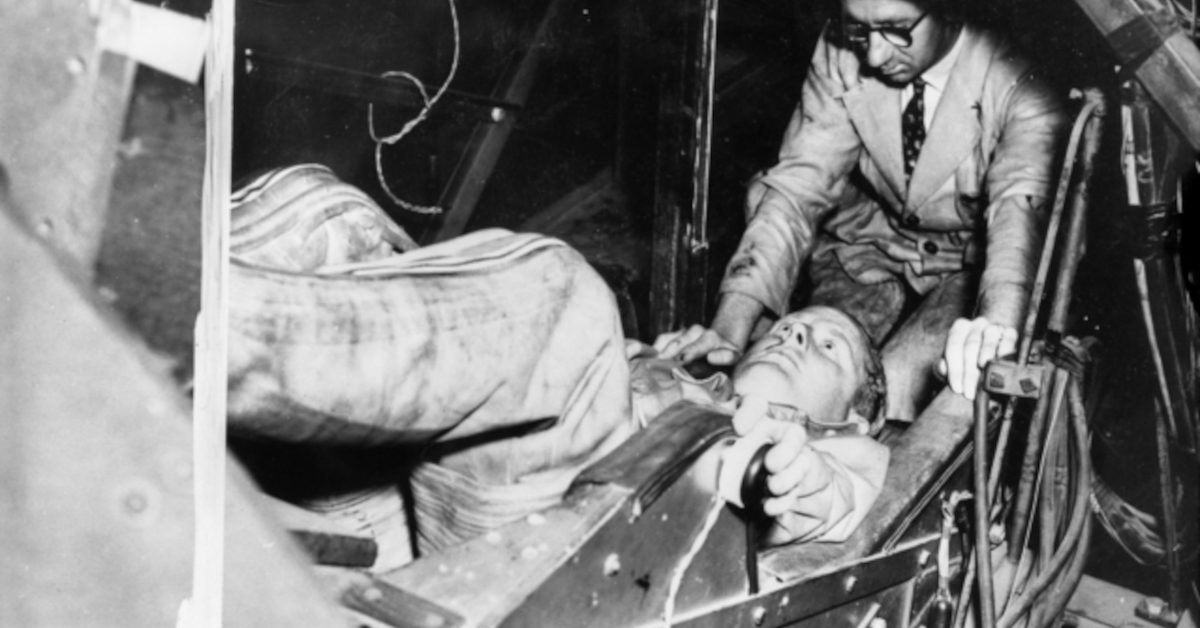
Frank Cotton and the Invention of the Australian G-Suit
Reading time: 9 minutes
The best-known wartime innovations are the largest, loudest, and flashiest, from humble handguns to the tank. But war has also prompted the invention of fascinating, and less destructive, devices designed not to harm life, but to protect it. One of these was the anti-gravity suit, or g-suit.


